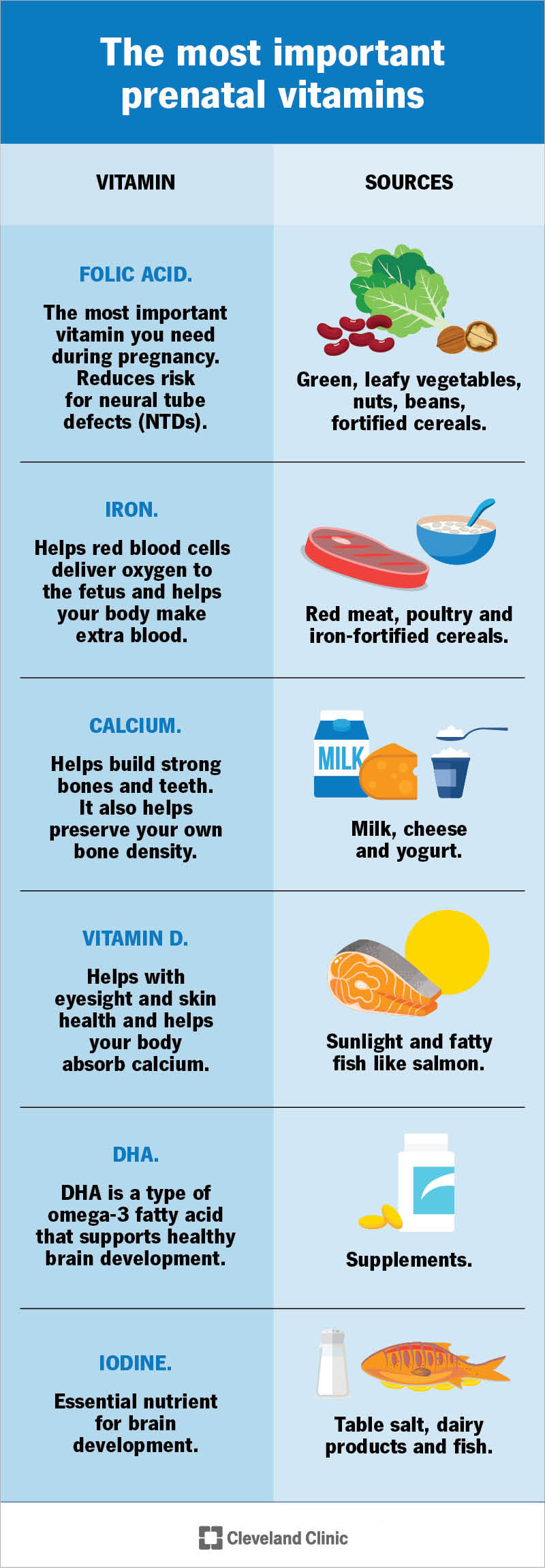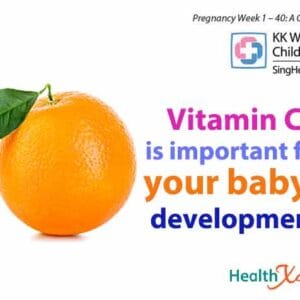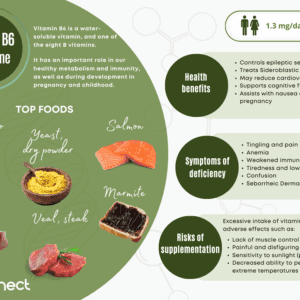During pregnancy, a woman’s body undergoes significant changes to support the growth and development of her baby. Prenatal vitamins with iron play a crucial role in ensuring the health and well-being of both mother and child. These supplements provide essential nutrients, including iron, folic acid, and calcium, that are vital for a healthy pregnancy. By taking prenatal vitamins with iron, expectant mothers can help prevent birth defects, support their baby’s growth, and alleviate pregnancy-related complications. The benefits of prenatal vitamins with iron are numerous, making them an essential part of a healthy pregnancy regimen for many women worldwide daily.

The Importance of Prenatal Vitamins with Iron for a Healthy Pregnancy
Prenatal vitamins with iron are specifically designed to support the health and well-being of pregnant women. These supplements provide essential nutrients that are crucial for the development of the fetus and the mother’s overall health during pregnancy. One of the key components of prenatal vitamins is iron, which plays a vital role in preventing iron deficiency anemia, a common condition during pregnancy. Iron is also essential for the production of red blood cells, which carry oxygen to the fetus.
Benefits of Prenatal Vitamins with Iron
Prenatal vitamins with iron offer numerous benefits for pregnant women. Some of the key advantages include: – Prevention of Iron Deficiency Anemia: Iron deficiency anemia is a common condition during pregnancy, and prenatal vitamins with iron help prevent it. – Supports Fetal Development: The nutrients in prenatal vitamins support the overall development of the fetus. – Boosts Energy Levels: Iron helps in the production of red blood cells, which can help boost energy levels in pregnant women.
Key Nutrients in Prenatal Vitamins with Iron
Prenatal vitamins with iron are formulated with a range of essential nutrients. Some of the key nutrients include: – Iron: Essential for preventing iron deficiency anemia and supporting the production of red blood cells. – Folic Acid: Crucial for preventing birth defects of the brain and spine. – Calcium: Important for the development of the fetus’s bones, teeth, and muscles.
| Nutrient | Benefits |
|---|---|
| Iron | Prevents iron deficiency anemia, supports red blood cell production |
| Folic Acid | Prevents birth defects of the brain and spine |
| Calcium | Supports fetal bone, teeth, and muscle development |
How to Choose the Right Prenatal Vitamins with Iron
Choosing the right prenatal vitamins with iron can be overwhelming due to the numerous options available. Here are some tips: – Consult a Healthcare Provider: Before starting any supplement, it’s essential to consult with a healthcare provider. – Check the Label: Ensure the supplement contains the necessary nutrients, including iron, folic acid, and calcium. – Consider the Form: Prenatal vitamins come in various forms, including tablets, capsules, and gummies. Choose a form that is easy to tolerate.
Potential Side Effects of Prenatal Vitamins with Iron
While prenatal vitamins with iron are generally safe, some women may experience side effects. Common side effects include: – Constipation: Iron can cause constipation in some individuals. – Nausea and Vomiting: Some women may experience nausea or vomiting after taking prenatal vitamins. – Stomach Upset: The iron in prenatal vitamins can cause stomach upset in some cases.
Tips for Taking Prenatal Vitamins with Iron
To maximize the benefits of prenatal vitamins with iron, follow these tips: – Take with Food: Taking prenatal vitamins with food can help minimize side effects like nausea and stomach upset. – Stay Hydrated: Drinking plenty of water can help prevent constipation. – Be Consistent: Take prenatal vitamins at the same time every day to maintain consistency.
Should I take a prenatal vitamin with iron?
Taking a prenatal vitamin with iron is a crucial aspect of a healthy pregnancy. Iron deficiency is a common issue during pregnancy, and supplementing with iron can help prevent it. The recommended daily intake of iron during pregnancy is 27 milligrams, which is higher than the recommended daily intake for non-pregnant women. Prenatal vitamins with iron can help meet this increased demand and support the health of both the mother and the developing fetus.
Benefits of Prenatal Vitamins with Iron
Prenatal vitamins with iron provide essential nutrients for a healthy pregnancy. The inclusion of iron in prenatal vitamins helps to prevent anemia, a condition characterized by low red blood cell count or hemoglobin level. This is particularly important during pregnancy, as anemia can increase the risk of preterm labor and low birth weight. Some key benefits of prenatal vitamins with iron include:
- Prevention of iron deficiency anemia: Iron supplementation helps to maintain healthy red blood cells and prevent anemia.
- Support for fetal development: Iron is essential for the production of red blood cells in the fetus, supporting its growth and development.
- Reduced risk of pregnancy complications: Maintaining adequate iron levels can help reduce the risk of pregnancy-related complications, such as preterm labor.
Potential Risks and Side Effects
While prenatal vitamins with iron are generally considered safe, there are potential risks and side effects to be aware of. Gastrointestinal side effects, such as constipation, nausea, and stomach upset, are common complaints associated with iron supplementation. In some cases, iron can also cause stomach cramps and diarrhea. To minimize these risks, it is essential to:
- Choose a prenatal vitamin with a gentle iron formula: Some prenatal vitamins contain forms of iron that are easier to tolerate, such as iron bisglycinate.
- Take the prenatal vitamin with food: Taking the vitamin with a meal can help reduce gastrointestinal side effects.
- Consult with a healthcare provider: If side effects persist or are severe, consult with a healthcare provider for guidance on alternative prenatal vitamins or iron supplements.
Selecting the Right Prenatal Vitamin with Iron
With numerous prenatal vitamins available, selecting the right one can be overwhelming. When choosing a prenatal vitamin with iron, look for a product that contains essential nutrients, including folic acid, calcium, and omega-3 fatty acids. Consider the following factors when making a decision:
- Verify the iron content: Ensure the prenatal vitamin contains the recommended amount of iron (27 milligrams).
- Check for additional nutrients: Opt for a prenatal vitamin that includes other essential nutrients, such as folic acid and calcium.
- Consult with a healthcare provider: A healthcare provider can provide personalized recommendations based on individual needs and health status.
What happens if you take prenatal vitamins when you are not pregnant?

Prenatal vitamins are dietary supplements designed to provide essential nutrients to pregnant women, supporting the health of both the mother and the developing fetus. When taken by individuals who are not pregnant, the effects can vary based on the specific composition of the vitamins and the individual’s nutritional status.
Nutritional Benefits
Taking prenatal vitamins when not pregnant can still offer nutritional benefits, particularly for individuals with dietary deficiencies or restrictions. Prenatal vitamins typically contain a broad spectrum of vitamins and minerals, including folic acid, iron, and calcium, which are crucial for overall health. These nutrients can help fill nutritional gaps in the diet.
- Folic acid is important for preventing birth defects of the baby’s brain or spine, but it also supports overall health by aiding in the production of red blood cells.
- Iron is essential for healthy red blood cells, which carry oxygen throughout the body, supporting energy production and overall health.
- Calcium is vital for maintaining strong bones and teeth, and it also plays a role in muscle and nerve function.
Potential Risks
While prenatal vitamins can provide essential nutrients, taking them when not pregnant can also pose risks due to the high levels of certain nutrients. For example, excessive intake of iron and folic acid can lead to adverse health effects. It’s crucial to be aware of these potential risks to avoid harm.
- High doses of iron can cause gastrointestinal side effects, such as nausea and constipation, and in severe cases, iron overload can lead to more serious health issues.
- Excessive folic acid intake can mask a vitamin B12 deficiency, potentially leading to neurological problems if not addressed.
- Other nutrients like vitamin A can also be problematic in high doses, as they can accumulate in the body and cause toxicity.
Alternatives and Considerations
For individuals who are not pregnant but are considering taking prenatal vitamins, it’s essential to evaluate their nutritional needs and consider alternative supplements or dietary adjustments. Consulting a healthcare provider can help determine the best course of action.
- Assessing dietary habits to identify nutritional gaps can help in choosing the right supplement or making necessary dietary changes.
- Considering a multivitamin formulated for one’s specific demographic (e.g., age, sex) might be a more appropriate choice than a prenatal vitamin.
- Discussing with a healthcare provider can provide personalized advice based on individual health status and nutritional needs.
What does iron do in a prenatal?

Iron is a crucial component in prenatal supplements, playing a vital role in supporting the health of both the mother and the developing fetus. During pregnancy, the demand for iron increases due to the expansion of maternal red blood cell mass and the needs of the growing fetus. Iron is essential for the production of hemoglobin, a protein in red blood cells that carries oxygen to different parts of the body.
The Importance of Iron During Pregnancy
Iron deficiency is a common issue during pregnancy, and it can lead to anemia, a condition characterized by low red blood cell count or low hemoglobin level. Anemia can cause fatigue, weakness, and shortness of breath in the mother, and it may also increase the risk of preterm labor and low birth weight. The importance of iron during pregnancy can be highlighted in the following points:
- Iron supports the production of hemoglobin, ensuring that the mother’s body and the fetus receive adequate oxygen.
- Adequate iron intake helps prevent anemia, reducing the risk of complications during pregnancy.
- Iron is essential for the overall health and development of the fetus.
How Iron Works in Prenatal Supplements
Prenatal supplements contain iron in various forms, with ferrous sulfate and ferrous gluconate being common types. These supplements help bridge the gap between the increased demand for iron during pregnancy and the amount obtained through diet alone. The role of iron in prenatal supplements can be further understood through the following:
- Iron in prenatal supplements helps maintain the mother’s iron stores, supporting her overall health.
- It aids in the prevention of iron deficiency anemia, which is crucial for maintaining the health of both the mother and the fetus.
- The inclusion of iron in prenatal supplements ensures that the fetus receives the necessary nutrients for proper development.
Benefits of Adequate Iron Intake During Pregnancy
Adequate iron intake during pregnancy offers numerous benefits, not only for the mother but also for the fetus. The benefits can be summarized as follows:
- Adequate iron intake supports the mother’s health by preventing anemia and related complications.
- It contributes to a healthier pregnancy outcome by reducing the risk of preterm labor and low birth weight.
- Proper fetal development is supported through the adequate supply of oxygen and nutrients made possible by sufficient iron levels.
Frequently Asked Questions
What are the benefits of taking prenatal vitamins with iron during pregnancy?
Taking prenatal vitamins with iron during pregnancy is crucial for the health and development of both the mother and the baby. Iron is an essential nutrient that plays a vital role in the production of red blood cells, which carry oxygen to the body’s tissues. During pregnancy, the demand for iron increases to support the mother’s increased blood volume and the baby’s growth. Prenatal vitamins with iron help to prevent iron deficiency anemia, a condition that can lead to fatigue, weakness, and complications during delivery. Additionally, prenatal vitamins with iron support the baby’s overall development, including the formation of their brain, nervous system, and circulatory system.
How do prenatal vitamins with iron support fetal development?
Prenatal vitamins with iron support fetal development by providing essential nutrients that are vital for the baby’s growth and development. Folic acid, a key ingredient in prenatal vitamins, helps to prevent birth defects of the baby’s brain and spine. Iron, on the other hand, supports the production of red blood cells in the baby, ensuring that they receive enough oxygen. Other essential nutrients in prenatal vitamins, such as calcium and vitamin D, support the development of the baby’s bones, teeth, and muscles. By taking prenatal vitamins with iron, mothers can help ensure that their baby receives the necessary nutrients for optimal development.
Can prenatal vitamins with iron help alleviate pregnancy symptoms?
Prenatal vitamins with iron can help alleviate some pregnancy symptoms, such as fatigue and weakness, by providing essential nutrients that support the mother’s overall health. Iron, in particular, helps to combat iron deficiency anemia, a common condition during pregnancy that can cause tiredness and shortness of breath. Additionally, prenatal vitamins with iron may help to alleviate other pregnancy symptoms, such as constipation and digestive issues, by providing fiber and other essential nutrients. By taking prenatal vitamins with iron, mothers can help to manage their pregnancy symptoms and maintain their overall health.
Are there any risks associated with taking prenatal vitamins with iron?
While prenatal vitamins with iron are generally safe, there are some risks associated with taking them. Iron can cause gastrointestinal side effects, such as constipation, diarrhea, and nausea, in some women. Additionally, taking too much iron can lead to iron toxicity, a condition that can cause serious health problems. To minimize the risks, it is essential to follow the recommended dosage and consult with a healthcare provider before taking prenatal vitamins with iron. They can help determine the best course of action and ensure that the mother and baby receive the necessary nutrients for optimal health.















